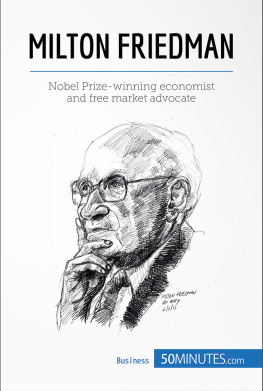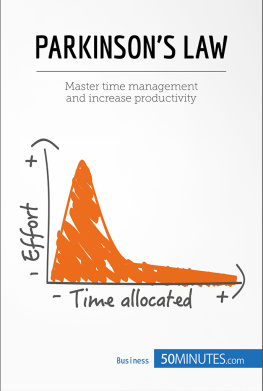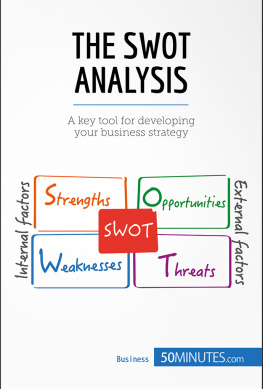
ADAM SMITH
Name: Adam Smith
Born:1723, Kirkcaldy (Scotland)
Died: 1790, Edinburgh
Background: A contemporary of the Industrial Revolution in the United Kingdom and the American Revolution of multiple socio-economic changes, Adam Smith is generally considered to be the guru of classical economics whose principles were based on liberalism.
Notable works:
Smith (Adam), The Theory of Moral Sentiments,1759.
Smith (Adam), An Inquiry into the Nature and Causes of the Wealth of Nations, 1776.
Smith (Adam),Lectures on Jurisprudence, Glasgow Edition, 1976.
Smith (Adam), Works and Correspondence of Adam Smith, Glasgow Edition, 1976.
Key concepts:
Absolute advantage: Smith defends the idea that each country should specialize in the production of goods for which their productivity is higher than that of its trading partners.
Division of labor: For Adam Smith, the specialization of each country in a specific task provides significant productivity gains.
Invisible hand: According to Adam Smith, a market economy allows individuals to match their individual interests with the public interest. He actually supported the existence of a self-regulating economic process that allows each actor in society to meet their own needs, while serving the common good.
Adam Smith is often although not universally regarded as the father of modern economics. Yet, he was influenced by many philosophers, among which we find the Physiocrats, who advocated a natural and free economy without state intervention. Furthermore, the Industrial Revolution had a decisive impact on the writing of The Wealth of Nations. In this book, Adam Smith is actually interested in the detailed example of the production of pins in a factory.
A true leader, Adam Smith sustainably influenced the thinking of most economists who followed him, especially the classical economists to whom he is often compared.
Did you know?
Economists are generally divided into different categories, according to their school of thought. From a conceptual point of view, the classical economists share the conviction that the exchange value of property reflects the cost of labor necessary for its production. In this sense, they are very different from their predecessors (the Physiocrats, who thought that value was derived solely from the exploitation of natural resources) and their contemporaries (neoclassical economists, who thought that value reflected the utility derived by individuals from the consumption of a good). The classical trend emerged at the start of the Industrial Revolution. However, since the late nineteenth century, it was the neoclassical economists who occupied center stage. They had a very different methodological approach, and used mathematics extensively while classical economists were satisfied with using logical reasoning. This had the effect of making the economic theory comprehensible to a very limited audience.
David Ricardo (English economist, 1772-1823) was inspired by Smith to develop his theory of comparative advantage (the principle that every country has an interest in specializing in the production of goods for which its cost of opportunity is lower), which would later be used by a British Member of Parliament to oppose the ambient protectionism. Even Karl Marx (1818-1883) known for his anti-liberal ideology was influenced by Adam Smith. In fact, they shared the idea that labor is the source of value.
HIS LIFE
Adam Smith grew up in the tranquility of the Scottish countryside until the age of 14. He then discovered city life during his stay at the University of Glasgow, from 1737 to 1740, and in accordance with his familys wishes, he decided to follow an ecclesiastical career by joining Oxford University in 1740. However, he later decided to change vocation and returned to live with his mother at the age of 23, putting him in a delicate situation without great prospects of achieving his dream to obtain an academic post at the University of Glasgow.
A fortunate encounter then convinced him to settle in Edinburgh to give public lectures. Their success certainly contributed to the realization of his dream which he seemed to have given up on to teach at the University of Glasgow, where he held the position of head of logic and later, moral philosophy. It was precisely at this time that he wrote and published The Theory of Moral Sentiments (1759), which offers a philosophical reflection.
In 1764, after a long academic career lasting 13 years, he became the private tutor of a young English Duke, Henry Scott (Duke of Buccleuch, 1746-1813). He took advantage of the opportunity to spend over two years travelling across Europe. On returning to Britain, he began working on writing his other great work, also considered to be the founding text of so-called modern political economics in the eighteenth century, An Inquiry into the Nature and Causes of the Wealth of Nations(1776). He spent the last part of his life as a commissioner of customs in Edinburgh, as his father had done.
CHILDHOOD (1723-1737)
Adam Smith was born in Kirkcaldy in 1723, a Scottish village located north of Edinburgh. He was named after his father, who died shortly before his birth. Raised by his mother, he was very fond of her throughout his life. The first major story of Adams childhood was his abduction by gypsies when he was only two or three years old. Fortunately, the event had a happy outcome as the kidnappers were arrested when trying to get away.
Later, Adam Smith was educated at the school of Kirkcaldy, where he quickly adopted a number of behaviors that were strange, to say the least: he talked to himself and spent his break times studying while his classmates played. Although of a particularly distracted nature, he nevertheless impressed his classmates with his excellent memory and very advanced sense of observation.
STUDYING IN GLASGOW (1737-1740) AND OXFORD (1740-1746)
In 1737, when he was only 14 years old, Smith left the village school to attend the University of Glasgow, which was considered relatively liberal and independent of the clergy at the time. Adam truly appreciated this academic environment and would be influenced for the rest of his life by the educator and philosopher Francis Hutcheson (1694-1746), one of the founders of the Enlightenment movement in Scotland. However, this state of intellectual grace only lasted three years.
In accordance with his familys wishes and after obtaining a scholarship in 1740, he decided to devote himself to the church and joined the University of Oxford. Oxford is still marked by the presence of strong conservatism. Contrary to what one might think, Smith adapted relatively well to this environment and benefited from the opportunity to learn about everything, except what he was asked. While he was supposed to spend his time studying theology, the young student made a point of deepening his knowledge in literature, physics and mathematics. He also wanted to perfect his Greek. His teachers, who only moderately appreciated this disinterest in theology, made him understand after an important event. One day, when caught reading A Treatise of Human Nature, a three-volume work by David Hume (Scottish philosopher, 1711-1776) which was regarded as heretical, his book was confiscated and although he escaped expulsion, he was punished in exemplary fashion. Soon after, he left Oxford, tired of the lack of freedom from which he suffered.
RETURNING TO KIRKCALDY AND INTELLECTUAL ASCENSION (1746-1764)
Next page













